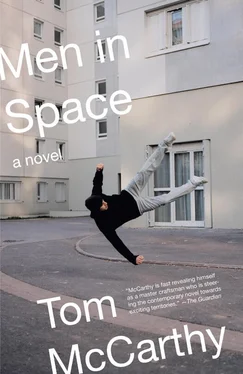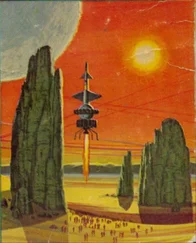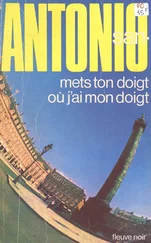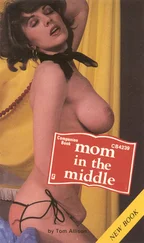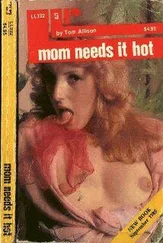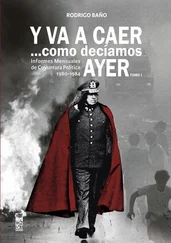“That only ever happens in the winter.” Ilievski releases Anton as he says this; they move on. “It’s the way the earth is facing. Tilted back, away from the sun. We wouldn’t see that if we were in, for example, Australia.”
“I like it too,” says Anton. “The moon out when it’s still light. You don’t know if it’s day or night.” There’s a song with that phrase, but in English. Don’t know if it’s … Dylan? No, Hendrix. For the next few metres, the lyrics play through Anton’s mind, a muted soundtrack: Excuse me, while I kiss the sky … They’ve come to a house set off the road. One storey, whitewashed plaster walls. Must have been built in the Fifties, Sixties, pretty typical suburban architecture — only its front wall, the north-facing one, has been replaced by sheets of glass. As they clear the house, a lawn drifts into view. On the lawn, spread all across it, sculptures stand, sit, lie. Some of them, still intact, show soldiers waving flags as they advance heroically across invisible battlefields, or overalled men and women holding aloft hammers and sickles, as though displaying them to some crowd long since dispersed. Others, fallen, show workers bending over lathes or blowing glass through long, trumpet-like tubes that nestle in the grass. Some are broken: there’s a gymnast swinging round the handles of a pommel horse, but his arms have snapped off at the wrist, leaving him rotating in the wrong dimension, through the lawn’s surface …
“Very fitting,” Ilievski murmurs.
They move across the lawn, among the sculptures. Some of the figures are facing one another; others are turned away to stare towards the house, the river. Some are so decrepit that rusty wires protrude from their arms and thighs. Cracked elbows, a shoulder and two torsos curled up fetally litter the ground. It reminds Anton of pictures Helena once showed him of Pompeians fossilized in lava. Next to a discus thrower an enormous iron cast of Stalin’s head lies on its side, eyes gazing blankly at the athlete’s feet. One ear has fallen off and sits upturned towards the sky. Ilievski raps his knuckles on the head. The raps make a deep, low clunking, like a broken bell. Did he say fitting?
“Sorry? Fitting?”
“Yes. These sculptures. To what I want to talk to you about: art.”
Art? Ilievski? Janachkov will be buying him tickets for the ballet next. Ili takes a pack of cigarettes from the pocket of his cashmere coat and lights one up. Anton says:
“I’m not really an expert …”
Ilievski chuckles. “I don’t want to talk about art, Anton. I’ve never understood that stuff. A car or a house are worth something. They do things for you. But a picture, a sculpture — they’ve got no use, and yet people will pay huge amounts …”
“Surplus value.”
“What?”
“Surplus value. It’s in Marx …”
Ilievski snorts derisively. “That’s probably why I haven’t heard of it. I don’t want to talk about art: I want to talk about a piece of art. Different kettle of fish. And before we go on, let’s understand that this one’s special.”
“Special?”
“Not for general discussion. To be kept between you and me.”
“Understood.”
“A painting,” Ilievski watches Rambo urinate against the gymnast as he speaks, “was delivered from Sofia last night. Needs to go to America.”
Now it’s Anton’s turn to snort. “Don’t we all?”
Ilievski turns and clasps him by the shoulder again; again his fingers dent his flesh, prod his nerves. He looks at Anton, eyes full of sympathy, then lets his hand fall, tilts his head back, blows out smoke and continues:
“This painting is quite old. It’s a religious painting, some kind of saint. You know the type.”
“An icon,” Anton says.
“That’s right, an icon. Well, with art, there’s usually no problem. It goes straight through Austria or Germany, through up-and-running routes, officials taken care of, you know the routine …”
Does he? Anton’s always wondered how it fits together, how it’s all connected: cells in Sofia and Berlin, Vienna, Istanbul, syndicates in London and the States, parts of a system linked by half-submerged chains … Back in November, when the body of that eighteen-year-old boy was found in Průhonice Park with its organs removed, the Helicopter Murder, he lay awake each night for a week staring at the poster of Santana on the wall and shuddering as every passing tram cast images of scalpel-sharp chopper blades into the bedroom, wondering if maybe, just maybe, one of those shady Middle-Eastern men he’d shepherded around, or else a transfer of funds he’d made by telephone on Ilievski’s behalf through offices in Moscow or Athens, had facilitated, however indirectly, this crime’s perpetration. How would he know? Chains and networks, parts all reacting to the other parts, negotiating the steps and swivels of some complex dance. He’s never seen an overview. Has Ilievski? Physics 7, Sofia Faculty of Engineering: the basic mechanical principle by which the turning effect of a force about a given axis, its leverage or “moment”, can be said to be directly relational to the distance from the pivot to the line of the force — this principle, they were told, was universally applicable. All systems have pivotal points: identify these and the whole structure will leap into focus. For an instant, Anton’s back in the white classroom watching Professor Toitov twiddle his pointer’s tip just inches from the whiteboard’s elaborate system diagrams — diagrams charting systems far beyond the field of engineering: economic, biological — daring his star pupils to locate the pivotal point before he does; and then the sighs, almost gasps, that spread around the room each time the point’s identified, rotational axis deduced, distance and moment calculated, the structure charted and contained, as though behind the physics lay a need for reassurance that these sprawling masses weren’t just accidents of time and circumstance, unmappable because unplanned …
“But this particular icon,” Ilievski’s saying, “is, apparently, exceptionally valuable. Too hot to deal with in the usual way.”
“So how do you want to get it to America?”
“I don’t. The police are going to recover it right here in Europe.”
“You said …”
“And at the same time …” a dramatic pause here, smirking, dark brown eyes holding Anton’s own, wrinkles almost overflowing with the knowledge they’re keeping tucked between their ridges, “it will go to America.”
He releases Anton’s eyes and throws his cigarette down, looks for Rambo, whistles.
“You can’t work that one out, can you, Brains?”
Rambo appears, wet, from behind the discus thrower. Ilievski leans down towards him, rubs his ears and waits for Anton’s answer. Anton hasn’t got one: he looks around, embarrassed, shoulders raised.
“I give up.”
Ilievski grabs Anton’s head, one hand on each side, and pulls it down onto his lips, which kiss it — twice, emphatically, like an emperor heaping honour on a subject. He hands the head back, jubilant.
“Ha ha! It’s passed the Anton test! If he doesn’t get it …”
He moves his own head towards Anton’s now, glances around the lawn, as though the sculptures were eavesdropping, then whispers:
“Listen. We need to make a copy of the painting.”
He moves his head away, looking at Anton intently.
“A copy? Why not just take a photograph?”
Ilievski, abandoning his surreptitious air, steps back and laughs loudly. The glass-fronted house laughs with him, and carries on laughing for a second after he’s stopped. He steps forwards again and gently raps on Anton’s crown the same way as he rapped on Stalin’s two minutes ago.
Читать дальше
